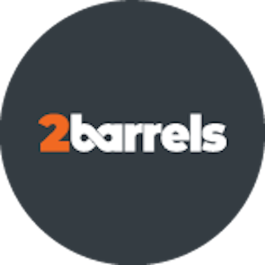For tech professionals, the drive for rapid development often collides with the need for sustainable practices.
The vast majority of developers have reported burnout as they balance the demand for speed with quality assurance and personal wellness. Likewise, the tension between fast-paced innovation and long-term well-being remains palpable, even as AI tools offer new avenues for productivity in development.
How can developers hit deliverables without compromising their personal and professional standards as project timelines accelerate? This challenge is not just about keeping up with technological advancements but also ensuring that the teams behind them can thrive without burning out.
Recent studies highlight the scale of this challenge: 83 percent of software developers have experienced burnout, exacerbated by high workloads and inefficient processes, according to a DevOps report. Meanwhile, McKinsey found that generative AI tools have the potential to double task completion rates, offering a glimpse of how technological solutions can enhance productivity without compromising developers’ health.
Still, while AI assistants may alleviate some of the rigors of rapid development, many aspects — open collaboration, thoughtful planning, task prioritization and continuous learning — are best addressed with conscious practices rather than automated tools.
Insights from engineering leaders at three companies reveal strategies for enhancing efficiency while nurturing sustained success.
The developers revealed their strategies and practices for boosting efficiency without sacrificing performance and well-being.
Corporate Tools is a professional services company that leverages technology to create exceptional products and invest in human resources to meet clients’ diverse business services needs.
Our employers obviously benefit when we work with speed. But how does moving fast as an engineer benefit you, your skill set and your overall career?
An early mentor told me of his unique interview style where he’d walk and ask questions. His reasoning? People who move fast get things done. Coding with speed helps features get to production quicker, allows feedback to be received quicker and creates quality products quicker.
Leaders look for those who get things done consistently and expeditiously.
During your career, what have you learned that helps you work faster?
Focus helps you work faster. The Pomodoro technique helps. Simply turn off all notifications, avoid checking chats and focus intently on your task at hand for 25 minutes. Set a timer. After 25 minutes of focused work, take five to ten minutes to answer communications or do other stuff. Repeat multiple times and watch the progress stack.
Paul Graham wrote the Maker’s Schedule, Manager’s Schedule, which loosely states that creators need large blocks of time to create. Be protective of your creative space and block off time so you can be effective. Batch tasks such as email, meetings and chat so they are completed at regular intervals while also freeing you up for chunks of focused coding.
“Mistakes are likely when you move with speed. Put processes in place to mitigate mistakes.”
What are the potential drawbacks of working with speed, and how do you mitigate them?
Mistakes are likely when you move with speed. Put processes in place to mitigate mistakes. Test Driven Development is a philosophy of creating tests before creating code. Think about what you are trying to accomplish, write a test that validates the outcome and then create the code to solve the problem. A consistent testing pattern allows you to move quickly and create high-quality, dependable code.
Eventus Solutions Group enhances customer engagement strategies and optimizes contact center operations through advanced technology solutions and expert consulting services.
Our employers obviously benefit when we work with speed. But how does moving fast as an engineer benefit you, your skill set and your overall career?
As engineers, fast execution is not solely about meeting deadlines; it is a journey of skill refinement and professional growth. Rapid problem-solving enhances technical proficiency, fostering adaptability crucial in dynamic environments. Balancing speed with client satisfaction is paramount; prioritizing quality ensures sustainable growth and fosters trust within our professional community. Moreover, embracing humility by acknowledging areas of weakness fuels continuous improvement, nurturing respect and credibility in the industry.
Speed challenges us to innovate efficiently, pushing the boundaries of our problem-solving abilities and deepening our technical expertise. It’s not merely about rushing through tasks but about leveraging speed to optimize processes including reaching out to those with more experience to deliver high-quality results consistently. Moving fast as an engineer not only benefits individual skill sets but also contributes to overall career advancement, positioning the engineer as an agile and reliable professional ready to tackle the challenges of tomorrow’s engineering landscape with confidence.
“Speed challenges us to innovate efficiently, pushing the boundaries of our problem-solving abilities and deepening our technical expertise.”
During your career, what have you learned that helps you work faster?
Throughout my career, I’ve cultivated a repertoire of strategies that significantly enhance productivity and efficiency. Timeboxing is an indispensable tool in an engineer’s arsenal. Much like maintaining focus during a video meeting where distractions abound, dedicating specific time slots to focused work ensures maximum efficiency while minimizing interruptions.
Collaboration is a cornerstone of accelerated progress; harnessing the collective expertise of the Eventus team expedites problem-solving and knowledge-sharing, catalyzing innovation and fostering rapid development. Nurturing genuine camaraderie within the Eventus team cultivates an environment where colleagues feel empowered to seek assistance, fostering a culture of mutual support that accelerates skill development and propels project advancement.
What are the potential drawbacks of working with speed, and how do you mitigate them?
While speed is essential for meeting demands, it should not compromise quality or overlook potential errors. Neglecting thorough quality checks and excluding the team from the process can damage our reputation and erode trust. Mitigation involves meticulous review processes and active team involvement to uphold standards and mitigate oversight. Cultivating open communication promotes collective accountability, ensuring that speed doesn’t come at the expense of excellence. Establishing clear guidelines and protocols for quality assurance throughout the project lifecycle can help identify and rectify potential issues before they escalate. Encouraging a culture of continuous improvement drives engineers to seek feedback and identify areas for enhancement.
By prioritizing quality alongside speed, Eventus ensures that our deliverables consistently meet high standards enhancing our reputation and maintaining trust with clients and stakeholders. This approach not only safeguards against the potential pitfalls of speed but also reinforces our commitment to delivering exceptional results and sustaining long-term success in our endeavors.
Crafted is a product development consultancy that brings together balanced teams to create products that drive tangible business outcomes.
Our employers obviously benefit when we work with speed. But how does moving fast as an engineer benefit you, your skill set and your overall career?
Personal growth: In business, the company iterating the fastest wins. The same is true for personal skills development. The more experiments you can run, the more you learn. Optimizing for the shortest path to working code in production challenges you to think critically, problem-solve efficiently and adapt quickly.
First impressions: Engineers who can hit the ground running and deliver results efficiently make the strongest first impressions. Dirty hands are more valuable than an ivory tower. Speed of impact allows you to stay competitive in an increasingly talent-rich environment.
Feedback: The only way to formulate good feedback is to be hands-on. Engineers who can provide quick, actionable, consistent feedback stand out.
During your career, what have you learned that helps you work faster?
Prioritization: Tackle tasks based on their value add and urgency.
Continuous learning: Keep abreast of the latest tools, technologies, and best practices. Read daily.
Automation: Know how to use your debugger, automate testing, automate build and deploy and leverage an AI assistant where possible.
Time management: Set clear goals, break down tasks into manageable chunks and utilize time-blocking strategies.
Effective communication: Clear and concise communication is essential for working faster and avoiding misunderstandings.
Focus and elimination of distractions: Turn off notifications, set boundaries and block focus time.
Iterative approach: Break down projects into smaller iterations or sprints. This allows you to deliver tangible results more quickly and adapt to evolving requirements more effectively.
Refactoring and code optimization: Clean, maintainable code is easier to understand, debug, and enhance.
“Prioritizing speed without a nod to sustainability puts future speed and scalability at risk.”
What are the potential drawbacks of working with speed, and how do you mitigate them?
Increased risk of errors: Pause and reflect regularly. Speed for speed’s sake is risky.
Bake quality practices into every step of the delivery process — code reviews, automated testing and continuous integration: This will allow you to catch errors early and ensure high-quality deliverables.
Underinvestment in the technical roadmap: Prioritizing speed without a nod to sustainability puts future speed and scalability at risk.
Burnout and stress: Take breaks, breathe fresh air, and protect your mental health. Break down projects into smaller, manageable iterations to reduce the pressure of delivering large features all at once. Be realistic when estimating.
Lack of reflection and learning: Companies that want to move fast must cultivate cultures of continuous learning and improvement. Without dedicated time for analysis and feedback, teams will miss opportunities to learn together and optimize their workflows. Embrace an iterative approach that allows for feedback and adjustments throughout the development process.











